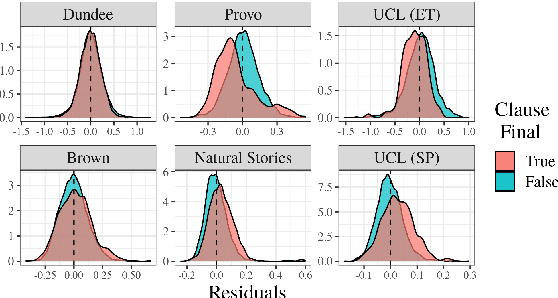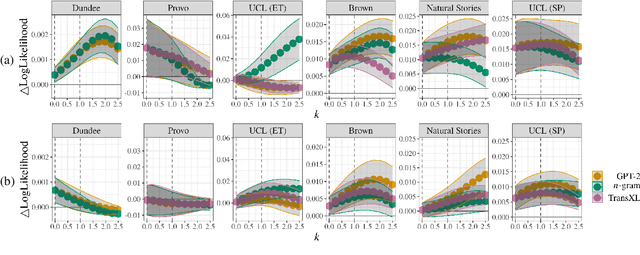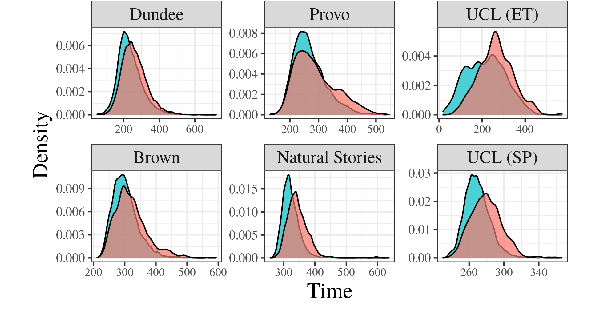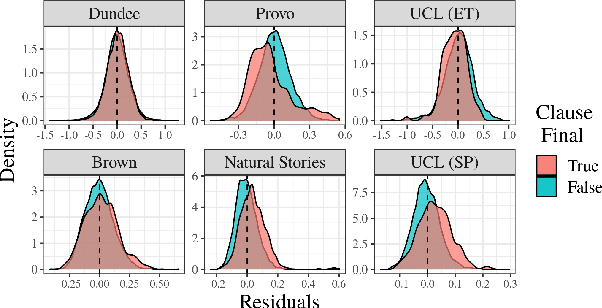Analyzing Wrap-Up Effects through an Information-Theoretic Lens
Paper and Code
Mar 31, 2022



Numerous analyses of reading time (RT) data have been implemented -- all in an effort to better understand the cognitive processes driving reading comprehension. However, data measured on words at the end of a sentence -- or even at the end of a clause -- is often omitted due to the confounding factors introduced by so-called "wrap-up effects," which manifests as a skewed distribution of RTs for these words. Consequently, the understanding of the cognitive processes that might be involved in these wrap-up effects is limited. In this work, we attempt to learn more about these processes by examining the relationship between wrap-up effects and information-theoretic quantities, such as word and context surprisals. We find that the distribution of information in prior contexts is often predictive of sentence- and clause-final RTs (while not of sentence-medial RTs). This lends support to several prior hypotheses about the processes involved in wrap-up effects.
 Add to Chrome
Add to Chrome Add to Firefox
Add to Firefox Add to Edge
Add to Edge